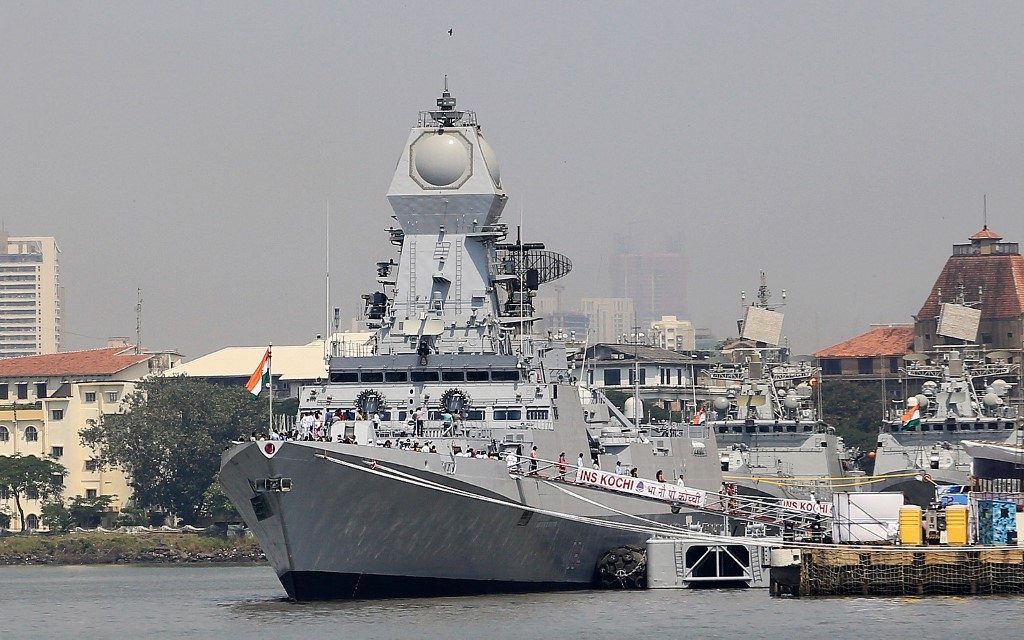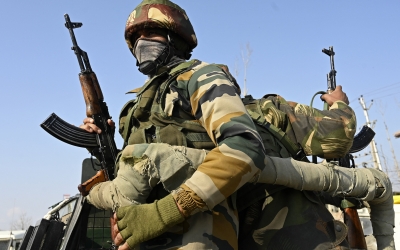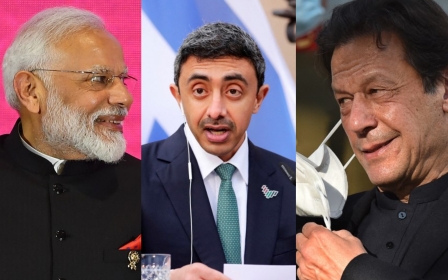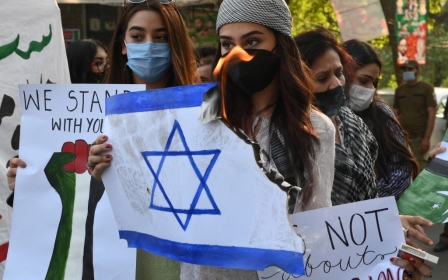India and Saudi Arabia hold first-ever naval exercises in Arabian Gulf

India and Saudi Arabia held joint naval exercises in the Arabian Gulf on Tuesday, reflecting the countries' growing defence and military cooperation, officials said.
The Indian embassy in Riyadh said in a statement that the INS Kochi, an indigenously designed, stealth guided-missile destroyer, would conduct "a number of shore and sea-based exercises" with the kingdom's navy.
Saudi Arabia's Eastern Fleet commander Vice Admiral Majed al-Qahtani said the exercise was the first of its kind between the Saudi and Indian navies and would enhance military cooperation in naval operations, the SPA News agency quoted him as saying.
The exercises, which will run until later this week, are taking place amid rising tensions in the Gulf after a suspected drone attack on a merchant tanker killed a British national and a Romanian citizen.
Israel has blamed Iran for the attack on the Mercer Street vessel. Tehran has denied the charges.
Since coming into office in 2014, Indian Prime Minister Narendra Modi has pushed an aggressive strategy of partnering with key regional powers - including Saudi Arabia, the United Arab Emirates (UAE) and Israel - in a bid to attract investments and forge deeper security partnerships
In 2016, Modi signed a memorandum of understanding on cooperation with the kingdom on intelligence sharing to counter terrorism threats.
Saudi Arabia is home to almost three million Indian expatriates who send home more than $10bn in remittances every year, according to India's foreign ministry.
India, which imports about 80 percent of its oil needs, is keen to take advantage of current low crude prices by signing overseas deals that will help secure supplies to meet growing demand as its economy develops.
In 2019, the two countries also signed five bilateral agreements in the areas of investment, tourism, housing and information and broadcasting.
While visiting New Delhi, Saudi Arabia's powerful Crown Prince Mohammed bin Salman said he saw an opportunity to invest as much as $100bn in various sectors in India.
Last week, India's air force chief was in Israel on a four-day visit after wrapping up a brief trip to the UAE.
Last year, India welcomed the UAE's decision to establish diplomatic ties with Israel, a deal that shattered a longstanding Arab consensus that there should be no normalisation with Israel until it reaches a comprehensive peace deal with the Palestinians.
Israel has long been assisting India with its surveillance and intelligence-gathering instruments. In 1999, Israel provided the Indian Air Force with Unmanned Aerial Vehicle (UAV) Searcher and surveillance systems during the Kargil war with Pakistan.
Middle East Eye propose une couverture et une analyse indépendantes et incomparables du Moyen-Orient, de l’Afrique du Nord et d’autres régions du monde. Pour en savoir plus sur la reprise de ce contenu et les frais qui s’appliquent, veuillez remplir ce formulaire [en anglais]. Pour en savoir plus sur MEE, cliquez ici [en anglais].





